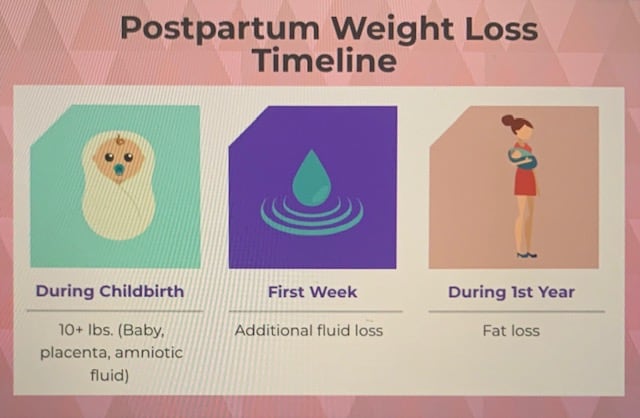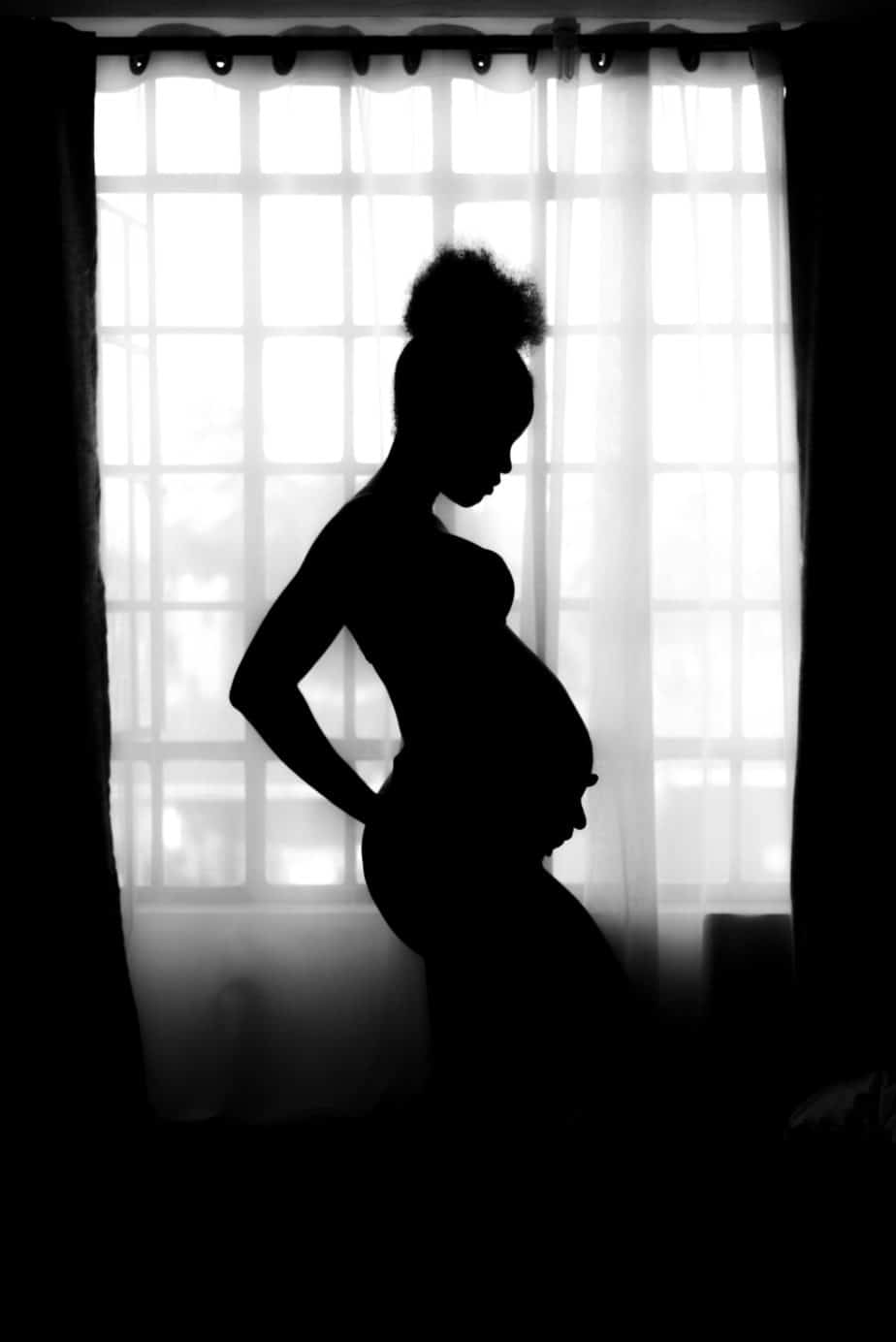A New Mama’s Guide to Healthy Postpartum Weight Loss & Exercise (Part 1)

Congratulations, You Had A Baby, Now What?
If navigating the start of your postpartum journey feels overwhelming, you’re not alone. Weight loss and exercise after pregnancy can be complicated as the body has undergone many physical and physiological changes, which continue throughout the postpartum period. For instance, pregnancy hormones can affect connective tissue up to three months after childbirth and continue through the duration of nursing. The body takes time to recover after giving birth, as the time for tissue healing can range from one to two years and is different for everyone.
Put simply, women should approach postpartum weight loss and exercise carefully. The subtle nuances of postpartum recovery make it difficult to standardize the process, which can leave new mamas eager to get back to their pre-baby body without knowing how to begin.
The Baby Weight

With the combined loss of the baby, placenta, and amniotic fluid, women will typically drop about 15 pounds at delivery. In the following month, women shed an additional 4-6 pounds from the loss of extra fluid. This leaves behind fat mass, which functions as a necessary energy source for nurturing a newborn.
Many postpartum women have a hard time returning to a healthy prenatal weight, with about 20% of women weighing 11 pounds heavier at 6-8 months after delivery (1). Weight gain combined with connective tissue laxity and muscle loss decreases joint stability and increases the risk of injury.
Experts agree that returning to prenatal weight between 6 to 12 months post-partum has been associated with more positive weight control outcomes for both mother and child (1).
Safe Weight Loss
Weight loss occurs when the total number of calories burnt in a day exceeds the amount of calories consumed. Therefore, either an increase in physical activity or reduction in the number of calories consumed is required for weight loss. This balancing act of energy input versus energy output is dependent upon your resting metabolism which is the amount of calories your body burns while resting. Current guidelines recommend a combined diet and energy induced deficit of 500 kcals (1). Breastfeeding mothers require an additional 450–500 calories per day, which may add up to greater weight loss for some women. However, it is unknown whether breastfeeding is solely responsible for this benefit.
Slow weight loss is the safest weight loss, with the American College of Obstetricians and Gynecologists defining healthy weight loss as 1-2 pounds per week.
During periods of rapid fat loss, in response to caloric deprivation, the body will also lose significant muscle mass. This is known as the starvation response and is counterproductive, as the loss of lean muscle mass slows down resting metabolism. A slower resting metabolism will promote weight gain and accelerate aging. Drastic dieting may also affect a mother’s milk supply and can decrease bone mineral density, which may increase the risk of developing osteoporosis later in life (1).
It may be tempting to cut back on calories when new mothers are sleep deprived and short on time for exercise. However, severe calorie cutting should be avoided as it can lead to detrimental consequences for baby and mother, such as:
- Increased fatigue
- Loss of muscle mass
- Slowed down metabolism
- Increased stress hormone signal
- Negative impact on sleep quality
- Reduced energy levels
- Delayed infant growth and development
Food is Fuel
Food choices matter when it comes to postpartum recovery and weight loss. Not all calories are created equal. Diets high in processed food are linked to poor outcomes. Low nutritional value foods will often promote binge eating habits as they typically leave you feeling unsatiated while high value foods can help promote weight loss.
- Diets high in processed food (ex: fried food) can lead to significantly higher rates of postpartum weight retention (2)
- Fiber-rich foods or healthy lean proteins can help promote fat loss, improve digestion, and lessen feelings of hunger
- Low quality food choices promote weight gain by reinforcing unhealthy habits
Therefore, new mothers should lighten the stress of calorie counting and enjoy nutrient rich foods without guilt. A consultation with a registered dietitian will help new moms make sure they are on the right path.
Successful Postpartum Recovery
For new mothers, long-term weight loss is rarely achieved by diet alone and should be combined with a graded exercise (1).
Efforts should be made to avoid crash dieting. The consequences of severe calorie restriction include:
- Stressful behaviors around eating
- Fatigue exacerbation
- Slowed metabolism
- Increased likelihood of sedentary behavior, which could potentially increase the risk of postpartum depression
Making wise choices about eating a healthy diet and getting regular exercise promotes sustainable postpartum weight loss and improves quality of life for new mamas and their babies.
By Victoria Garrett, PT, DPT
Sources:
1. Cochrum, Robbie. (2015). Postpartum Weight Control and the Contribution of Exercise. International Journal of Childbirth Education 2015; 30: p48-53. 6p
2. Nartea, R., Mitoiu, B. I., & Nica, A. S. (2019). Correlation between Pregnancy Related Weight Gain, Postpartum Weight loss and Obesity: a Prospective Study. Journal of medicine and life, 12(2), 178–183. doi:10.25122/jml-2019-0015
3. Saligheh, M., Hackett, D., Boyce, P. et al. Can exercise or physical activity help improve postnatal depression and weight loss? A systematic review. Arch Womens Ment Health20, 595–611 (2017). https://doi.org/10.1007/s00737-017-0750-9
4. ACOG postpartum toolkit: Achieving a healthy weight in the postpartum patient [Fact sheet].(n.d.).acog.org/-/media/Departments/Toolkits-for-Health-Care-Providers/Postpartum-Toolkit/ppt-weight.pdf?dmc=1&ts=20190917T1749210981
5. Nascimento, S., Pudwell, J., Surita, F., Adamo, K., & Smith, G. (2014, May). The effect of physical exercise strategies on weight loss in postpartum women: A systematic review and meta-analysis. Retrieved January 24, 2020, from https://www.ncbi.nlm.nih.gov/pubmed/24048142/







